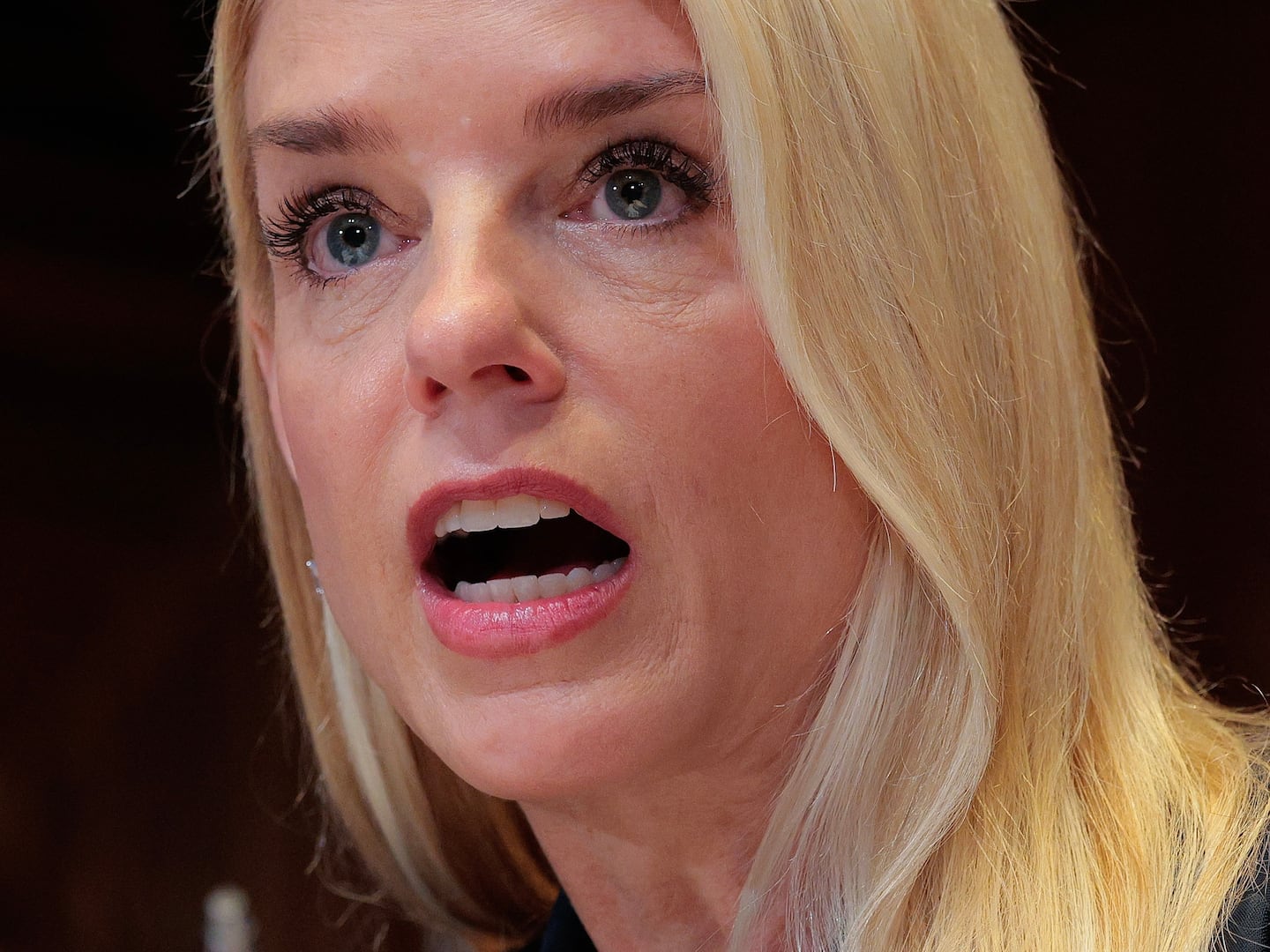
Gen. David Petraeus, the top U.S. commander in the region, has warned that the success of President Bush’s “surge” in Iraq—really a misnomer for the U.S. exploitation of a Sunni tribal revolt against the presence al Qaeda in Iraq—was "fragile” and “reversible.”
Four-and-a-half months after the U.S. pulled troops out of a subdued Anbar Province and turned security over to the Iraqi Army, the meaning of “reversible” is becoming all too clear. A deadly rash of suicide bombings and sectarian violence has spread from oil-rich Kirkuk in the north to Baghdad in the weeks leading up to President Barack Obama’s inauguration Tuesday. In a little more than a month, insurgents have killed upwards of 200 Iraqis, many of them soldiers, police, and sectarian leaders. At least another 300 have been maimed or wounded.
The new political reality is already creating new Iraqi enmities, exacerbating old ones, and giving rise to unexpected new bedfellows along the fault lines created by the surge.
The attacks have been bold, murderous, and massive. Vice President Joe Biden’s visit to Baghdad earlier this month was marked by a succession of attacks, including a car bombing near the French Embassy, in the heavily fortified Green Zone, that killed eight and wounded 29. Insurgents staged massive back-to-back bombings in the Kadhimiya section of the city on December 27 and January 4 that killed 64 Shiite pilgrims and injured another 118 visiting the holy Shiite shrine of Imam Musa Al Kadhim.
In Yusufiyah, a former hotbed of AQI activity, 24 tribal leaders associated with the Sunni Awakening died and at least 42 others were wounded when a relative wired with explosives walked into a lunch meeting. The deadliest single attack took place in early December, when a suicide bomber killed 57 Sunni and Kurdish leaders and wounded another 100 who were meeting to discuss sectarian tensions in a restaurant just outside the northern city of Kirkuk.
Despite U.S. and Iraqi military assertions to the contrary, insurgent forces said to have been all but wiped out by President’s Bush “surge” are back with a vengeance. Exactly who is responsible for the new wave of violence, however, is not clear. Most U.S. and Iraqi military officers see the hand of AQI terrorists in the resurgent violence. Even so, the new attacks have hardly rolled back the advances made by U.S. counterinsurgency forces during 2007 and 2008 in places like Anbar Province and parts of Baghdad once controlled by AQI and their militant Sunni allies.
Indeed, the weakness of the surge was that U.S. commanders, under pressure to keep down troop levels, selectively targeted only the worst areas, where insurgents had intimidated the local population and set up safe houses, bomb factories, and arms caches, and hoped for a kind of trickle-down effect. In those places, with the help of the Sunni chiefs, the strategy worked brilliantly.
Elsewhere, it was a different story. Petraeus and his commanders knew that other centers of civil unrest, bad actors, and intractable problems were likely to persist. By early 2008, it had become clear that Sunni extremists and AQI fighters alike were escaping Anbar and setting up shop in Kirkuk and northern Iraqi cities and towns, where Sunni-Kurd relations were tense. Meantime, intensifying Shiite-on-Shiite violence between competing militias and political factions was deemed beyond the scope of the surge and left to the predominantly Shiite government of Prime Minister Nouri al Maliki.
Worse, U.S. Army intelligence confirmed in October that Iran was training Iraqi Shiite militia at camps outside Tehran and in Lebanon in the use of small arms, mortars, and antiaircraft weapons against American troops in Iraq. There were also unconfirmed reports that al Qaeda chiefs were reexamining their own tactics in Iraq after the surge.
In short, even before U.S. critics began to assail the Maliki government for its failure to press for Sunni-Shiite reconciliation, top U.S. military strategists knew just how tentative and temporary Iraq’s hard-won civil peace really was. With the newly signed U.S. status-of-forces agreement and upcoming provincial elections this month, the familiar patterns of Sunni-Shiite sectarian violence have given way to more complicated alignments as Iraq’s dominant political factions adjust to the changing security situation and jockey for elective power.
The old patterns may well be a thing of the past. The Maliki government is reportedly using its police force and the 11th Division of the Iraqi Army, backed by U.S. troops, to drive rival Shiite cleric Muqtada al Sadr and his Jaish al-Mahdi militia out of Sadr City, where Sadr’s followers threaten Maliki at the polls. The Baghdad police and Iraqi Army have been bitterly criticized after the mass killings in the Kadhimiya district for failing to provide adequate security for the weeklong Shiite pilgimmage. The bombings, reportedly the work of AQI, undercut the Maliki government and played to Sadr’s advantage.
In Kirkuk, minority Sunni tribal chiefs meeting with Kurdish leaders to work out communal problems rooted in the struggle over oil rights were murdered by a suicide bomber bent on disrupting Sunni-Kurd conciliation. Any Sunni-Kurdish disarray, however, may ultimately strengthen the hand of the Maliki government, which is battling for a share of the oil wealth in the Kurdish-controlled region.
The new political reality is already creating new Iraqi enmities, exacerbating old ones, and giving rise to unexpected new bedfellows along the fault lines created by the surge. It is also opening up new opportunities for violent meddling by extremists. If the level of civil chaos worsens, U.S. commanders may be tempted to slow down the pace of the U.S. withdrawal.
That would be a mistake. The longer U.S. combat brigades stay in Iraq, the longer it will take to redeploy them to Afghanistan. That in turn will only tie President Obama’s hands in making difficult strategic decisions about the serious threats the U.S. still faces in the region.
Russ Hoyle is the author of Going to War (Thomas Dunne Books, St. Martin's Press, 2008), a detailed account of the18-month run-up to the Iraq war. He is a former senior editor at the New York Daily News, Time, and The New Republic. Hoyle is at work on a new book about counterinsurgency and the U.S. military.






